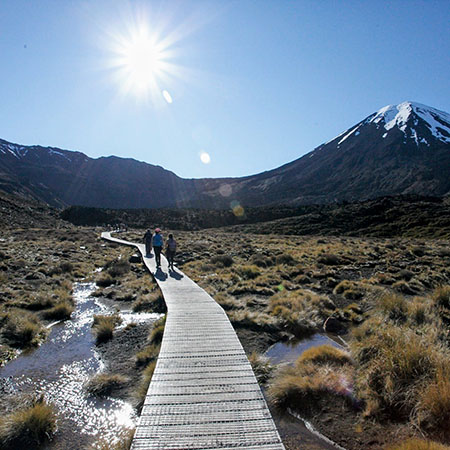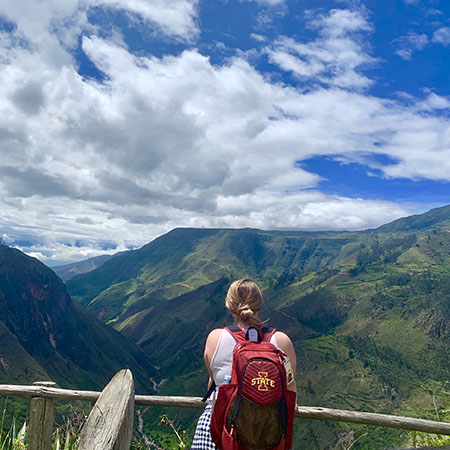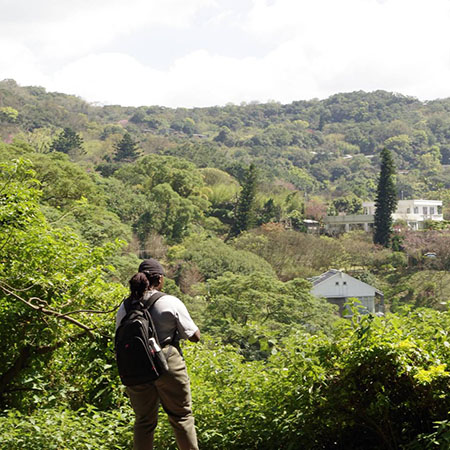Identities Abroad








- Connect with the CHS Multicultural Programs Office.
- To get an overview of a country’s diversity and inclusion climate, check out Diversity Abroad’s Destination Guides. On this website you can also find travel tips and read about student experiences in their articles section.
- Allabroad.us helps students from diverse backgrounds to find study abroad resources and to obtain advice from study abroad mentors.
- To find first-hand experiences, try searching for travel blogs and social media accounts written by people of color who have traveled to the destinations you are interested in.

- If there are laws supporting or restricting gender and sexual expression
- If there are any LGBTQIA+ organizations or support systems available
- The attitudes and beliefs of locals surrounding dating and relationships
- Connect with the Center for LGBTQIA+ Student Success.
- To get up-to-date information for LGBTIA+ people traveling abroad (including pre-departure tips and advice), visit the U.S. Department of State LGBTI Travel Information website.
- Visit the U.S. Department of State Passport Gender Designation Change to learn how to change or select a gender on your passport.
- To find first-hand experiences, try searching travel blogs and social media accounts written by LGBTQIA+ people.
- Connect with ISSO.
- Read ISSO’s Travel Outside the U.S. Document.
- Check out Diversity Abroad’s Destination Guides to get an overview of a country’s diversity and inclusion climate.
- To find first-hand experiences, try searching for travel blogs and social media accounts written by people from your country.
- What the majority and minority religions are
- If there are any laws about practicing or promoting religion
- How to respectfully visit religious landmarks
- If it is safe to wear religious symbols or clothing
- Diversity Abroad offers tips, student profiles, and information about diversity and inclusion overseas. See especially their page on religious diversity abroad.
- Search for countries in the U.S. State Department International Religious Freedom Report, which will give you demographic breakdown as well as recent events surrounding religion in each country.
- On the CIA World Factbook website, look for your host country’s page and research the “People and Society” section, where you can find the religious breakdown of the country.
- If you need to abstain from certain foods because of your religion, visit the Dietary Restrictions resource page.
- To find first-hand experiences, try searching travel blogs and social media accounts written by people who share your religion.

- What the physical demands of the experience will be
- What, if any, laws the country has about accessibility
- If there are any accessibility support services
- What local perceptions are of disability and mental health
- If academic accommodations will be necessary or possible
- If all medication you are taking is legal abroad
- If you are interested in studying abroad but have accessibility concerns, we recommend reaching out to both the CHS International Programs Office and Student Accessibility Services Office.
- Consult with Thielen Student Health Center and schedule an appointment with the travel clinic.
- To find a host of resources about traveling abroad with physical, sensory, intellectual, or mental disabilities, visit the State Department’s Travelers with a Disability page.
- Mobility International USA (MIUSA) is a resource center for disability-related questions about international experiences. Check out their tip sheets and personal stories.
- If you are currently taking medication, read the CDC’s page on Traveling Abroad with Medicine.
- To find first-hand experiences, try searching for travel blogs and social media accounts written by people with the same accessibility needs.
- How common is your dietary restriction in your host country?
- How will you express your needs to vendors, restaurant staff, etc.?
- Will you have the resources to cook your own food if eating out is not an option?
- Will the airline you are flying on be able to provide you appropriate food?
- Will you be able to bring specialty items to supplement your nutritional health?
- If you are traveling in a non-English speaking country, try learning the words to describe your restriction in the local language. Depending on the country, you may be able to purchase a card online that explains your dietary restriction in the country’s native language.
- Talk with your doctor about studying abroad. They may be able to consult you on the viability of traveling or provide needed dietary supplements.
- Connect with Student Accessibility Services Office.
- Consult with Thielen Student Health Center and schedule an appointment with the travel clinic.
- Visit Zabihah.com for a guide to Halal restaurants and markets around the world.
- Check out Kashrut.com for a kosher travel guide organized by country.
- If you do not eat animal products for religious reasons, check out the vegetarian & vegan resources below.
- Vegetarian Resource Group offers country-specific resources of vegan-friendly restaurants and hotels across the world.
- Visit vegantravel.com for vegan travel guides and vegan travel blogs.
